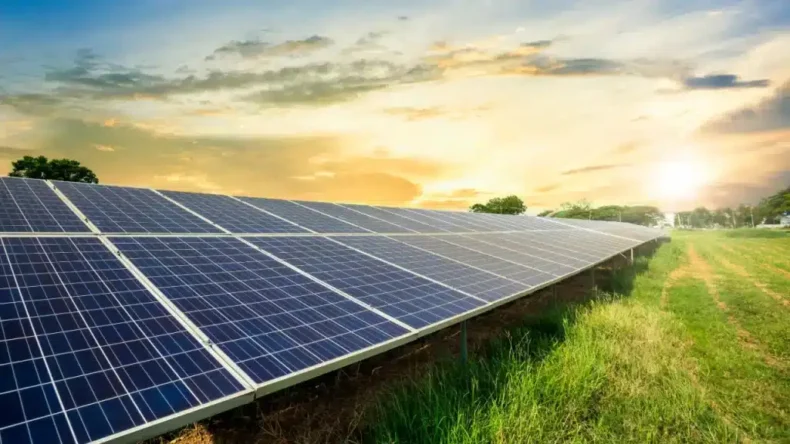For consumers in the residential and commercial and industrial (C&I) segments, Panasonic Life Solutions India Pvt. Ltd. will concentrate on energy storage technology.

Panasonic Life Solutions India’s head of solar business, Amit Barve, stated in an interview that the company will soon release its first B2C product, a solar power kit for home consumers.
With the goal of making our customers happier through our goods and services, Panasonic Holdings will keep collaborating with researchers both inside and outside the firm to enhance AI technology research and development.
Head of Panasonic life solutions, Amit Barve states
According to Barve, the company is introducing solar inverters for residential use to take advantage of rooftop and net metering policy opportunities and is also testing a homegrown prototype net metering as it seeks to quadruple its solar business turnover to Rs 1,000 crore in the following three to four years.
Panasonic has manufacturing facilities in Japan, Malaysia, and the US and has been active in the solar sector for 45 years. It started with “HIT” modules built on proprietary technology but was overtaken by cutting-edge innovations and inexpensive Chinese supply.
“Energy storage alternatives are the logical progression of what we will see, therefore. The first variation in domestic household kits.The next stage would be to make it hybrid, giving it the ability to operate both on and off the grid while employing batteries as a kind of energy storage. Batteries are a crucial component of the home package, and we are currently working on a few demo locations for our storage systems”, according to Barve.
Solar tech business of Panasonic life solutions

We’re concentrating on smaller applications in the residential market, and we also want to offer it for the C&I business, where we’re working on solar EPC projects, he added.
The solar division of Panasonic Life engages in EPC projects for its C&I clients and provides solar modules via original equipment manufacturers (OEM). Additionally, it is attempting to grow its export market.
The company began shipping solar modules made in India to Turkey in 2021 and is currently a significant supplier to South-East Asian nations. “As our first significant export market for solar modules, Turkey was where we started. We’ve reached five to six ASEAN nations,” he claimed, adding that the business wants to increase its exports to Europe, North America, and Latin America.
25% of the company’s total sales come from exports. About 25% of our overall revenue this year came from exports, with domestic sales accounting for the remaining 75%. We will develop our export business such that it accounts for more than one-third of our revenue, the man declared.
According to Barve, supply issues have abated slightly, resulting in higher module pricing.
“Raw material prices have increased over the past two years, which has never happened in the solar industry. However, with a very big increase in polysilicon manufacture, wafer capacity, and ingot capacity, the raw material value chain is returning to normal. In the past two to three weeks, we have begun to notice the first indications of price stabilisation or even slight decline”, said Barve.
Domestic manufacturing will accelerate over the next few years thanks to the government’s focus on creating a local solar module manufacturing ecosystem with production-linked incentives, he noted.
READ MORE:
https://tdznkwjt9mxt6p1p8657.cleaver.live/haryana-sports-minister-resign-position-sexual/
https://tdznkwjt9mxt6p1p8657.cleaver.live/indian-idol-13-vishal-dadlanis-comment-on-shekar-ravjiani/













